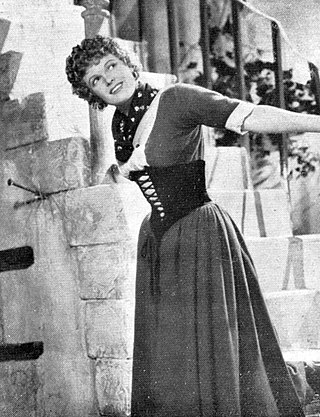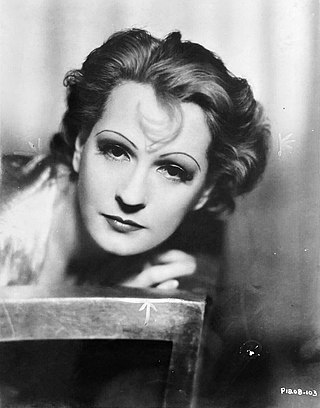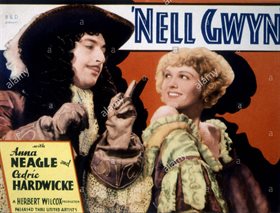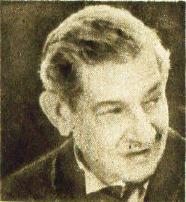
Dame Florence Marjorie Wilcox, known professionally as Anna Neagle, was an English stage and film actress, singer, and dancer.

Michael Charles Gauntlet Wilding was an English stage, television, and film actor. He is best known for a series of films he made with Anna Neagle; he also made two films with Alfred Hitchcock, Under Capricorn (1949) and Stage Fright (1950); and he guest starred on Hitchcock's TV show in 1963. He was married four times, including to Elizabeth Taylor, with whom he had two sons.

Margaret Mary Day Lockwood, CBE, was an English actress. One of Britain's most popular film stars of the 1930s and 1940s, her film appearances included The Lady Vanishes (1938), Night Train to Munich (1940), The Man in Grey (1943), and The Wicked Lady (1945). She was nominated for the BAFTA Award for Best British Actress for the 1955 film Cast a Dark Shadow. She also starred in the television series Justice (1971–74).

Eleanor Gwyn was an English stage actress and celebrity figure of the Restoration period. Praised by Samuel Pepys for her comic performances as one of the first actresses on the English stage, she became best known for being a long-time mistress of King Charles II of England.

Herbert Sydney Wilcox CBE was a British film producer and director.

Charles II of England has been portrayed many times.

Juliette Compton was an American actress whose career began in the silent film era and concluded with That Hamilton Woman in 1941.

Nell Gwyn is a 1934 British historical drama film directed by Herbert Wilcox and starring Anna Neagle, Cedric Hardwicke, Jeanne de Casalis, Miles Malleson and Moore Marriott. The film portrays the historical romance between Charles II of England and the actress Nell Gwyn. In the opening credits, the dialogue is credited to "King Charles II, Samuel Pepys and Nell Gwyn" with additional dialogue by Miles Malleson. It was also released as Mistress Nell Gwyn.

Limelight is a 1936 British musical film directed by Herbert Wilcox and starring Arthur Tracy, Anna Neagle and Jane Winton. It was released in the U.S. as Backstage.

Frederick Randle Ayrton was a British actor of stage and screen, and was also a producer and director.

King's Rhapsody is a 1955 British musical film directed by Herbert Wilcox and starring Anna Neagle, Errol Flynn and Patrice Wymore. Wymore was Errol Flynn's wife at the time of filming. It was based on the successful stage musical King's Rhapsody by Ivor Novello.

London is a 1926 British silent romantic drama film, directed by Herbert Wilcox and starring Dorothy Gish. The film was adapted by Wilcox from a short story by popular author Thomas Burke. The British Film Institute considers this to be a lost film.

Madame Pompadour is a 1927 British silent historical drama film directed by Herbert Wilcox and starring Dorothy Gish, Antonio Moreno and Nelson Keys. The film depicts the life of Madame de Pompadour, mistress of Louis XV of France. It was the first film to be shot at the newly christened Elstree Studios.

Flames of Passion is a 1922 British silent film drama directed by Graham Cutts, starred Mae Marsh and C. Aubrey Smith.

Chu-Chin-Chow is a 1923 British-German silent adventure film directed by Herbert Wilcox and starring Betty Blythe, Herbert Langley, and Randle Ayrton.

Tip Toes is a 1927 British silent film comedy-drama, directed by Herbert Wilcox and starring Dorothy Gish and Will Rogers. The film is a loose adaptation of the stage musical Tip-Toes, with the action transferred from Florida to London.
Southern Love is a 1924 British drama film directed by Herbert Wilcox and starring Betty Blythe, Herbert Langley and Randle Ayrton. It is based on the verse drama The Spanish Student by Henry Wadsworth Longfellow. It is known by the alternative title Woman's Secret.
Nell Gwyn (1650–1687) was an actress and long-time mistress of King Charles II of England.

Mistress Nell Gwyn is the title of the New York edition of an historical novel by the British writer Marjorie Bowen. The book was also published in London with the title Nell Gwyn: A Decoration. The book was first published in 1926.

Lilacs in the Spring is a 1954 British musical film directed by Herbert Wilcox and starring Anna Neagle, Errol Flynn and David Farrar. The film was made at Elstree Studios with sets designed by the art director William C. Andrews. Shot in Trucolor it was distributed in Britain by Republic Pictures. It was the first of two films Neagle and Flynn made together, the other being King's Rhapsody. It was released in the United States as Let's Make Up.


















